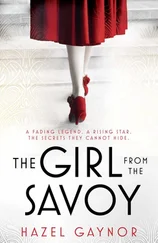Don’t get me wrong: the money was a factor as well. It was not just a way to punish Polanski; it was also a way of compensating me. I had two children (and would soon have one more), and neither Dave nor I made a great deal of money. I had no resources to sue magazines and newspapers when they printed lies about me, often lies that came from Polanski’s autobiography. It seemed like they would never stop coming after me. And it seemed that everyone, including Roman, had profited from my assault—everyone except me. When tabloids offered me money for interviews in the past (the National Enquirer offered fifteen thousand dollars in 1977), I’d turned them down. This didn’t make me noble; in fact, it might have made me naïve. But it was my version of integrity. Nobody else seemed to have the same scruples.
More important, when coming to this decision, I’d had a lot of dark years. Who knows if I would ever have been successful, but my ability to pursue the career I wanted was quashed before I had a chance to find out. There were long periods when the very effort of not dwelling on what had happened to me, of trying to ignore everything that was said about me in newspapers and on television, made me find some pretty stupid ways to numb myself. I take responsibility for my weaknesses and my bad decisions, but I also believe that my opportunities were reduced, and my life compromised, as a result of Polanski’s rape of the thirteen-year-old me.
In most cases, this lawsuit would have been impossible—the statute of limitations for filing a civil suit in California would have run out years ago. But even though more than a decade had passed, I could still sue. Why? Two reasons. First, in California, the clock is not ticking until the child victim of a sexual assault case turns eighteen. Second, the statute of limitations isn’t applicable during the period a defendant is out of the state. So because Polanski had left the country in February 1978 and stayed out, it was as if I were bringing this lawsuit in 1978, not 1989.
Polanski’s lawyers had a job to do: they had to prove that whatever emotional distress I had in my life was not the fault of Polanski. So they would bring up the crazy Nana, the drug-addled friends, even the fact that I smoked marijuana with my sister when I was sixteen. And there was the suggestion that I had been molested as a child, which was what motivated me to accuse Polanski later on. Polanski’s new lawyer, David Finkle, mentioned that I’d been asked by the district attorney whether I’d had sex with Bob, my mother’s boyfriend—and wondered why I had been asked that question. “Try insensitivity,” Larry shot back.
For the lawsuit I was deposed for days, as were members of my family. It was embarrassing to admit I had lied to the grand jury initially about both my sexual and drug experiences. I had said I had slept with someone twice before, when in fact it was once, and I had also lied about taking a Quaalude before meeting Polanski. I said I had when I hadn’t. Why?
When Polanski was trying to persuade me to take the pill, I’d wanted him to think that when I said no I was speaking from experience—kind of “been there, done that, don’t need to do it again.” But once I’d lied to him, I felt I had to maintain that lie for the grand jury. As I said in this deposition: “I was afraid he would call me a liar, and people would further have no belief that what I was saying was true.”
It was upsetting to hear the way my sister, Kim, thought my life had changed since Polanski. She described me as an introvert, a person who only went out when she had to and rarely socialized outside the home. Was she exaggerating? She certainly didn’t think so.
And here’s the thing. Maybe some of Polanski’s lawyers’ insinuations were valid. Who knows? They attacked my character, and their suggestion seemed to be that Polanski’s raping me fit seamlessly into my already messy life. So really, what was the big deal? But that’s sort of like arguing, “Your Honor, having her legs run over by a Mack truck doesn’t change anything; she already had a limp.”
The lawsuit dragged on over the next few years. (The press didn’t find out about it until years later, because Larry had rather cleverly filed the suit under the title “Jane Doe v. R. Rpolanski.” Making a typo meant that the case was indexed under the defendant’s last name, which began with an R . So anyone looking for a case with the name Polanski wouldn’t find it. (Remember, this was pre-Google.) During that time, I continued to have people show up at my house, photographing me and my family, trying to convince me it would be “good for me” to tell my story.
Two in particular stand out. First, there were the women I called the Weird Book Ladies. One day, two women showed up at my house saying they were looking for my mother; they had some gifts for her. I assumed they were real estate clients. With my baby Alex on my hip, I walked them into her house so we could put the packages they had on her table. Once back outside, they admitted they were really looking for me. I felt so stupid, so violated, like I’d walked a burglar right into our home. They had written a book called Perfect Victim: The True Story of “The Girl in the Box” —about a girl who’d been kept in a coffin as a sex slave for seven years. And—good news—for their next project they wanted to write my story. The idea that they associated my story with this other one was disturbing enough; even worse was the letter they wrote me a few weeks later, offering to pay one hundred thousand dollars if I cooperated. And if I didn’t? “Eventually someone will do the story anyway, and once again, Sam will be left with nothing.” The veiled threats weren’t lost on me, and I refused to have anything to do with them. But even after I told them to talk to my lawyer, they continued to send presents—a crystal lighthouse, some potpourri—even some Mickey Mouse toys for the kids. (All of which I gave away. It was sad; we needed money and my children would have enjoyed those presents, but it just felt wrong.) All I can say is this: When a person’s opening conversational salvo is “We don’t mean to frighten you” (as theirs was), prepare to be really, really frightened. I know I was.
Then in 1990 a guy from the tabloid television news show A Current Affair parked his van across the street from my house for three days with a video camera shooting out of a tinted window toward my house. He refused to leave. He had three huge flower arrangements delivered, one each for Mom, Kim, and me. He also tried to make me an offer I couldn’t refuse. He’d pay me five thousand dollars to talk, and if I didn’t, he’d just do the story without me. It took us two days to notice the camera, and during that time my children, friends, and family had all been filmed. I was trapped in my own house, sitting on the floor, because he had a camera pointed at us and I didn’t want to be photographed. This lasted for several days, until Larry got hold of the right person at the show and gave him a lesson on the legal meaning of extortion.
This kind of attention was more than just a nuisance. I lived with my husband, mom, and little kids on this remote island, and it had been so easy to find me; and because I wasn’t naturally on guard, I’d let these unpleasant, slightly menacing strangers into my home. It made me feel so stupid and vulnerable. How could I protect my family from this kind of thing? I couldn’t.
The most revealing incident from those years occurred when Larry went to Paris to depose Polanski himself. It was a fairly routine proceeding that took place in a lawyer’s office. There was a court reporter Larry had brought from the United States, Polanski’s lawyer David Finkle, and Polanski himself. After two hours there was a break for lunch. Larry went to eat by himself in a café close to the office, not noticing until later that Polanski and his lawyer were at a nearby table.
Читать дальше












